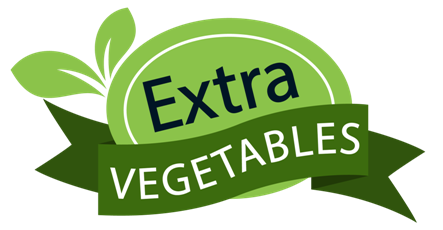Getting the nutrition right for your growing kid is crucial, especially in the first few early years. What your toddler is getting to eat impacts its growth, health, and development in the short term and later in life. Giving your toddler proper nutrition helps their growth and health, and giving it the right balance of food also establishes a healthy eating habit consisting of a varied diet that goes well with the rest of the family.
A balanced diet for toddlers is mandatory. For this, you must include the principles of healthy eating, but you must also ensure that the nutrients that are provided to your toddler are in manageable packages. This means not giving them a lot of high-fiber foods in bulk and making sure it has healthy fats and good-quality protein.
1. How Much Should My Toddler Be Eating

Typically, toddlers should have two to three snacks and three meals per day, including six to eight drinks. They can judge their appetites; on some days, they won’t feel like eating much, but they will catch up on other days. Their tummies are tiny so give them portions the size of their cupped hands. You can bring variety to their food by offering two courses at lunch and dinner.
You can go for mini egg or veg muffins as a healthy snack for them or a hand-held lunch. The egg in this snack is an excellent source of protein, and the courgette, peas, and carrots provide fiber and other required nutrients.
A Few Examples Of Healthy Meals For Toddlers
A balanced and healthy diet should consist of foods from each main food group. The main food groups are:
1.1. Vegetables and Fruits
You should give your toddler around five hand-sized portions of vegetables and fruits per day. You should include a variety of colors in dried, fresh, canned, frozen, or juice form. Colored fruits contain micronutrients such as vitamin C and are great as a snack or a dessert. While developing preferences for food, it is essential to include familiar foods.
Hence giving a bowl of colorful vegetables and fruit will be very beneficial. If your toddler won’t eat their vegetables, place a bowl of colorful vegetables and fruits in front of them. The beautiful colors will encourage them to try them out. You can also eat the veggies in front of them, show them how much you enjoy the food, and encourage them to try it themselves.
1.2. Grains And Starchy Carbs
You have to give toddler-sized portions to your kid to ensure proper nutrition, so include at least five pieces each day: cereals, bread, potatoes, pasta, and rice. These foods are a great source of vitamin B and energy. Brown rice and wholegrain cereals are high-fiber starchy foods that provide the extra required nutrients. But these foods can make the diet pretty bulky, so it is essential to introduce them gradually.
1.3. Dairy Foods and Milk
Providing three servings each day consisting of dairy foods such as yogurt, cheese, and milk is ideal. For toddlers, full-fat varieties are best, but you can introduce semi-skimmed milk from the age of two if the toddler eats well and gets a varied diet.
You can give calcium-fortified plant milk that is unsweetened to your toddler from the age of one. However, you should not give your baby any rice drinks under five, as these products usually have high arsenic levels.

1.4. Beans, Pulses, Fish, Meat, and Other Protein Foods
You need to give your toddler at least two portions of protein per day. These can include fish, meat, nuts, eggs, or pulses. Pulses can be lentils, beans, or foods made from pulses such as dhal, tofu, and soya chunks. These foods provide micronutrients, minerals such as iron, zinc, and proteins. You can also include oily fish twice a week such as mackerel, salmon, and sardines.
2. What Drinks Should You Give Your Toddler
It is essential to maintain good hydration levels, especially if your toddler is very active and you are living in a region with hot weather. A liter a day is the right amount, which amounts to six to eight drinks. You should give them water as the primary drink, supplementing it with a cup or two of milk. Acidic drinks such as juice, squash, and pop are likely to cause tooth decay; hence, you should look for more ways to protect your toddler’s teeth. Ideally, your toddler should drink from a free-flowing beaker or a cup instead of a bottle.
2.1. Is Supplementing My Toddler Diet A Good Idea?
It is recommended to boost your child’s diet using vitamin drops, especially if they are under five. The health visitor can provide you with free vitamins. It is advised for all toddlers to take vitamins A, C, D, and E.
3. How To Avoid The Fussy Eating Of My Toddler
Toddlers and babies will have a preference for sweeter foods as breast milk is moderately sweet tasting. However, they can be made to learn the taste of other food by exposing them to it and repeating those foods. It will require patience on your part because sometimes it can take up to 10-15 attempts for your toddler to accept the food.
If you see that your toddler is constantly rejecting a food item, don’t fret and try it again another day. You can easily set a good example for your toddler to try different food by eating it yourself in front of them and showing them how much you enjoyed it.

Summing Up
You must ensure proper nutrition for your toddler. For them to grow properly, you must provide them with the right food. Knowing a few examples of healthy meals will make providing the right nutrition much easier. That is where our list of healthy food items will help you, so go through this article and ensure that your toddler is getting the proper nutrition it requires. While you are at it, you should also explore the importance of lifestyle nutrition. Best of luck!

